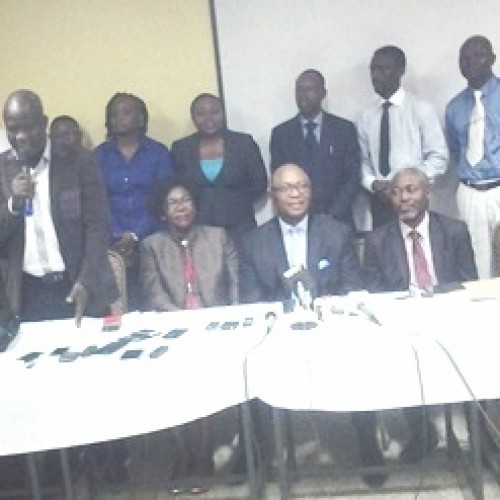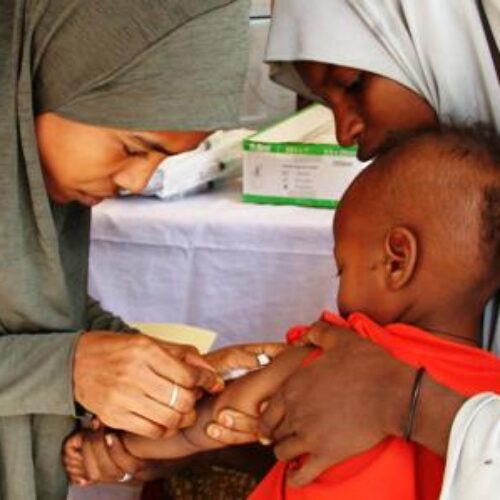When government lives off the sick

Have you bought a drug lately?
From “simple” analgesic to the complex ones for serious ailments such as cancer, asthma, diabetes or hypertension, the prices are now so outrageously out of the reach of the man-on-the street. Ask any insulin-dependent diabetic or an asthmatic who must keep one or two inhalers at hand to prevent attacks, especially as we approach the cold season. It’s becoming more difficult to stay in control and alive.
These days, there’s hardly any time you visit public hospitals in Lagos, for instance, and you won’t see one or two fellows roaming about with prescriptions, begging for assistance. In fact, the 419 rogues have cashed in on the situation. They now use fake or old prescription forms to beg for money.
The pharmaceutical companies are, of course, the first to get the blame for jerking up prices without any thought for the patient. But we know this line of thought can no longer hold in the present economic realities. Truth is, the pharma industry, like every other industry in Nigeria, must contend with the peculiar challenges of doing business in Nigeria, especially in these hard times. So, whether we like it or not, they must sell their drugs at prices that will keep them in business.
What is known however is that drug prices can be reduced by as much as 30% to 40% if the government cares and chooses to intervene. Like every other industry in Nigeria today, the pharmaceutical industry has its fair share of double taxes, high duties, tariffs and all sorts of levies charged by governments at all levels which are passed to those who buy their drugs – the patients. As legitimate as this is, what governments elsewhere in the world do is to reduce or cancel such levies, at least for life saving drugs and other essential commodities.
I remember some years back when virtually all diabetes drugs were imported from Egypt. It turned out that the Egyptian minister then was diabetic and in an effort to make life easier for other diabetics, he ensured that government levies on diabetes drugs were removed and prices automatically went down. This action even rubbed off on diabetics in faraway Nigeria as our business men – trust them – started importing diabetes drugs from Eqypt at cheaper prices.
Not so in our beloved Nigeria. Cancer patients, for instance, not only have to cope with the excruciating pain and drastic therapies often associated with the condition, they must also contend with high cost of cancer drugs. In Nigeria, you are on your own if you come down with cancer or such disease that requires management with expensive drugs.
At the moment, only people living with HIV/AIDS enjoy subsidy on their medications and that is no thanks to our government alone. HIV/AID enjoys immense support and grants from international agencies.
No matter what they say about our health care, truth is our government has no visible plan for citizens who suffer from non-communicable disease , most of which are not only incurable but require expensive drugs to keep patients alive. Most of them are not even covered by the health insurance scheme. Indeed, we’ve heard of cancer patients selling off their belongings to be able to meet the costs of require therapies to alleviate their pain. We’ve also heard of citizens dying needlessly just because they cannot afford to pay for the drugs and care they need to survive.
If our government will not come to the aid of patients, it should at least, waive the high taxation and levies to reduce the ever rising drug costs. I know from my interaction with pharmaceutical companies, that a waiver will reduce the cost of drugs significantly and put a smile (or grin) on the faces of millions of patients suffering from cancer, diabetes, asthma, hypertension etc. A waiver on duties for pharmaceutical raw materials is also necessary to boost local production of the drugs.
The Federal Government must act now. Let there be a quick rethink about tax and importation policies on essential drugs. Government does not have to live off the sick.
About author
You might also like
LUTH performs 7 open heart surgeries in 3 days
… celebrates medical team The management of Lagos University teaching Hospital (LUTH) Thursday addressed a press conference to formally honour its team of professionals that performed seven open heart surgeries
Taraba vaccinates over 70,000 for Rotavirus, other child killer diseases
A total of 77,791 children in Bali local government area of Taraba State have received vaccinations for Rotavirus and other child killer diseases in three days. This excludes the number
Lassa Fever: WHO officials visit Edo Health Commissioner
Edo State Commissioner for Health Prof Obehi Akoria has assured that the government would leave no stone unturned as it collaborates with the World Health Organisation (WHO) and other partner






0 Comments
No Comments Yet!
You can be first to comment this post!